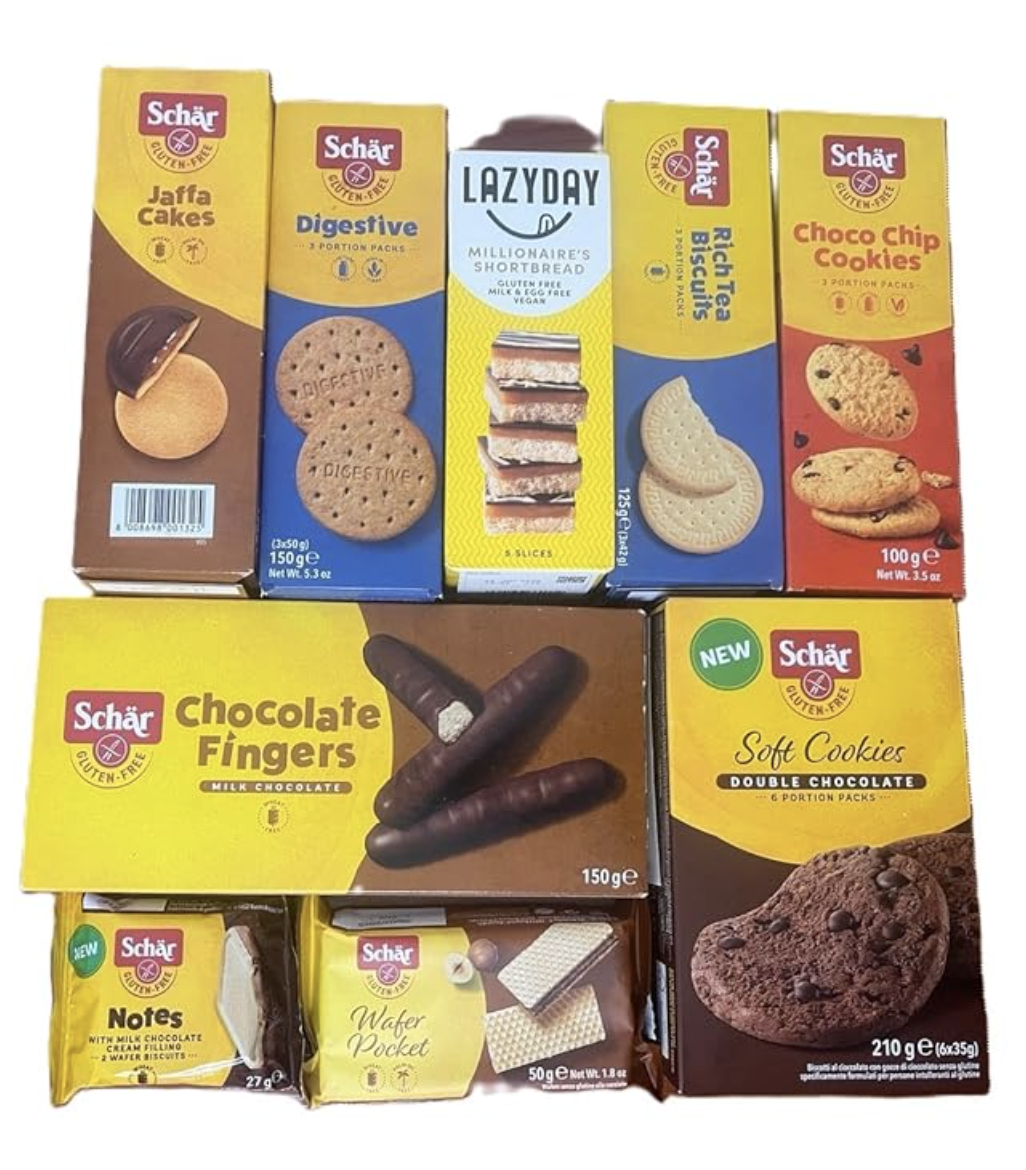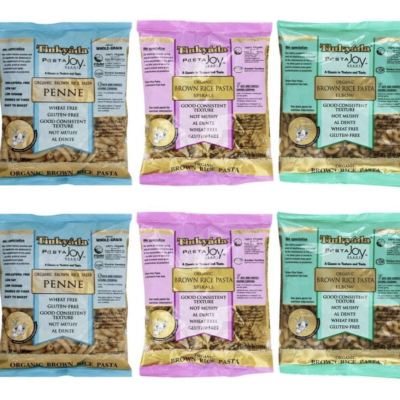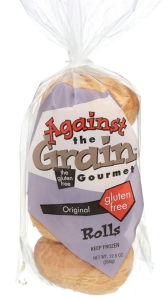What Is Celiac Disease?
Warning This is not medical advice.
Celiac disease is a digestive disease that damages the small intestine and interferes with the absorption of nutrients from food. When you have celiac disease you cannot tolerate gluten, which is a protein in wheat, rye and barley.
When gluten is consumed the immune system responds by damaging or destroying the Villi, tiny fingerlike protrusion lining the small intestine; this Villi allows nutrients from food to be absorbed through the walls of the small intestine into the bloodstream. Without healthy villi you will become malnourished.
Celiac disease is genetic; it runs in families and it can develop at birth or later in life.
What are the Symptoms of Celiac Disease?
Symptoms for Children Include:
Diarrhea
Vomiting
Constipation
Pale foul smelling stool
Failure to thrive
Delayed growth
Seizures
Adult Symptoms Include:
Anemia
Brain Fog (finding it hard to concentrate)
Joint pain
Fatigue due to iron-deficiency anemia
Ataxia (bad balance)
Nerve damage (peripheral neuropathy)
Early Onset Osteoporosis
Depression
Anxiety
Low blood Sugar
Infertility or miscarriages
An itchy skin rash called Dermatitis Herpetiformis
Respiratory problems
Rocacea
Eczema
Psoriasis
Muscle cramping
Night Blindness
Nosebleeds
Hair loss (Alopecia)
Canker Sores (apthous ulcers)
How is Celiac Disease Diagnosed?
Blood Tests
A doctor will test blood for high levels of anti-tissue transglutaminase antibodies or anti-endomysium antibodies. This is not always the best way to test and you may come back with a negative result for Celiac if you have already removed gluten from your diet.
Intestinal Biopsy
The blood test may or may not suggest celiac disease. A biopsy of the small intestine is performed.
A tiny piece of tissue from the small intestine to check for damages to the villi.
Complications:
Malnutrition:
Untreated celiac disease can lead to malabsorption, which then leads to malnutrition. because vital nutrients are not absorbed into the bloodstream, malabsorption can cause a deficiency in vitamins and minerals (vitamin D, folate and iron), this resulting in anemia. Malnutrition can cause stunted growth and delayed development in children.
Osteoporosis:
The continued loss of vitamins may result in a softening of the bone in children which could lead to rickets and loss of bone density.
Depression:
Depression may be likned to the malabsorption of nutrients. A study suggested that the malabsorption could interfer with the neurotransmitters that determine our moods.
Irritability and Forgetfulness:
It is found that a deficiency in Folic Acid can cause increased irritability and forgetfulness.
Skin Conditions and Diseases:
Such as Dermatits Herpetiformis, Eczema and Psoriasis.
Lactose Intolerance:
When the small intestine is damaged from gluten some people won’t be able to tolerate lactose, which is found in dairy products. It is advised to avoid these products until your intestine has been healed by a strict gluten free diet allowing the intestine to heal. Once it has people may find that the dairy products no longer affect them in this way.
Lupus:
Multisystem disorder
Cancer:
People who go untreated for celiac disease are at a higher risk of getting several forms of cancer, including Bowel Cancer and Intestinal Lymphoma.
Dental Enamel Defects:
Usually occurs if celiac disease is present as the teeth are forming, the teeth may appear to have white or brown spots on the tooth or in some cases ridged and malformed teeth.
Raynaud’s Syndrome:
Caused by a constriction of the blood vessels in the body due to cold temperatures.
Neurological Complications:
This disease has also been linked with the disorders of the nervous system.
Autoimmune Disorders:
Celiac disease can lead to a number of disorders such as
Addison’s disease
Insulin Dependent Diabetes
Rheumatoid Arthritis
Fibromyalgia
Thyroid Disease (Such as Hashimoto and Graves)
Sjogren’s Syndrome
Psoriasis, Aphthous Stomatitis
Multiple Sclerosis
Alopecia areata, Virtigio
Autoimmune Liver Disease
Heart Disease
Cardiomyopathy
What Can You Eat On A Gluten Free Diet?
If you have gone 100% gluten free and are still having issues; these products may be manufactured in a shared facility.
FDA allow 20 ppm of gluten in a gluten free labeled product but sadly a lot of times it can be more.
See the FDA reasoning here: FDA
Search for gluten free products that are in a separate facility.
Let’s start with what you CANNOT EAT:
(Warning this is not medical advice)
-
- Wheat
- Barley
- Rye
- Triticale
Education is key in monitoring your diet. Apart from gluten been in obvious foods like bread pasta and beer. Gluten can be hidden in any processed foods:
-
-
- Imitation fish (e.g. crab meat)
- Sauces
- Soy Sauce
- French Fries
- Hot dogs
- Cold Cuts
- Potato Chips
- Candy
- Chocolate
- Any Manufactured Foods, always check how products are processed and if the facility is shared with gluten containing products.
-
Ingredients that contain gluten:
Abyssinian Atta Flour Barley Barley Grass Barley Hordeum Vulgare Malt Beer Bleached Flour Bran Brewers Yeast Bromated Flour Brown Flour Bulgar Wheat Cereal Binding Chilton Club Wheat Couscous Cracked Wheat Crisped Rice Dinkel Durum Durum Flour Einkorn Emmer Farina Farro Filler Graham Flour Hydrolyzed Wheat Protein Kamut Malt Malt Extract Millet Oats Phosphated Flour Rusk Rye Semolina Spelt Triticale
Now the good news, a few examples on what you CAN EAT and obviously in the non-processed form:
-
-
- Fish
- Meats
- Rice
- Potatoes
- Corn
- Nuts (watch for cross-contamination in production)
- Quinoa
- Sago
- Seeds
- Wine (WARNING some wines are not gluten free contact supplier).
- Tequila (made from pure blue agave plant).
- Potato Vodka
- Gin (made from potato)
- Rum (research brands)
- Cognac (made from grapes)
- Gluten Free Beer (Gluten Removed Is Not Safe For Celiacs)
-
Cheat Sheet for Food and their benefits.
-
Vitamin A
- Romaine Lettuce Squash Apricots Bell peppers (green best) Broccoli Cabbage Cantaloupe Green Beans Asparagus Plums
-
Vitamin B
- Sunflower Seeds (B1) Watermelon (B6 B1) Avocado (B6) Bananas (B6) Bell Peppers (B6 B1) Black Beans (B1) Cabbage (B6) Cantaloupe (B6) Carrots (B6 B1 B3) Cauliflower (B6) Halibut (B3) Mushrooms Plums (B2) Potatoes (B6) Raspberries (B2) Salmon (B12 B3) Sardines (B12) Scallops (B12) Shrimp (B12) Strawberries (B5) Squash Yams (B6)
-
Vitamin C
- Spinach Strawberries Yams Sweet Potatoes Turnip Greens Watermelon Celery Cherries Asparagus Bell Peppers Blueberries Broccoli Cabbage Cantaloupe Cauliflower Green Beans Lemons Mangoes Oranges Papaya Potatoes Raspberries Romaine Lettuce
-
Vitamin D
- Sardines Shrimp
-
Vitamin E
- Apricot Asparagus Sunflower Seeds Turnip Greens
-
Vitamin K
- Romaine Lettuce Spinach Soybeans Avocado Broccoli Carrots Cauliflower Bell Peppers Green Peas Asparagus Pumpkin Seeds
-
Iron and Absorption
- Green Beans Garlic Kidney Beans Leeks Lentils Plums Quinoa Sesame Seeds Spinach Asparagus Soy Flour
-
Protein
- Greek Yogurt Lentils Peanuts Shrimp Soy Flour Soy Beans Tofu Tuna
-
Calcium
- Cabbage Milk Cheese Figs Flaxseeds Greek yogurt Romaine Lettuce
-
Potassium
- Bananas Bell Peppers Broccoli Cabbage Cantaloupe Green Beans Kiwifruit Onions Papaya
-
Folate
- Onions Papaya Peanuts Pinto Beans Raspberries Spinach Strawberries Turnip Greens Chick Peas
-
Fiber
- Apples Figs Kiwifruit Acocado Beets Black beans Cherries Kidney Beans Lentils Lima Beans Navy Beans Peas Pinto Beans Raspberries Strawberries Soybeans Chick Peas
-
Healthy Digestion
- Caraway Seeds helps to fight the bad bacteria in the intestine and allow the good bacteria to digest food. Also good for digestion Apples Bananas Black Beans Brussels Sprouts Papaya Pineapple
-
Immune System
- Grapefruit Celery Mushrooms
-
Energy Food
- Almonds Asparagus Avocado Beef Venison Cod Fish Corn Green Peas Tomatoes
-
Muscle
- Millet Bananas Eggs Almonds Salmon Yogurt Beef Olive Oil
-
Osteoporosis Strong Bones and Joints
- Onions Tomatoes Rasins Spinach Figs
-
Good Heart
- Leeks Apricot Buckwheat Cherries Green Beans Halibut Navy Beans Olives Onions Oranges Pinto Beans Potatoes Romaine Lettuce Scallops Sesame Seeds Tuna Walnuts
-
Help Blood Sugar
- Buckwheat (Make sure GF facility) Avocado Cauliflower Cherries Figs Flaxseeds Navy Beans Squash Yams
-
Brain Foods
- Blueberries Eggplant Flaxseeds Red Grapes Halibut Salmon
-
Healthy Eyes
- Carrots Plums Raisins
-
Blood Pressure Health
- Potatoes Soybeans Tuna
-
Minimize Hunger
- Almonds Apples Apricots Lentils Sunflower Seeds
-
Low Cholesterol
- Brussels Sprouts Navy Beans Soybeans
-
Healthy Fats
- Almonds Avocado Halibut Olives Salmon Sardines Scallops Walnuts
-
Anti-Inflammatory Support
- Beets Mushrooms Strawberries Spinach Squash
-
Fend Off Free Radical Damage
- Plums Raisins Walnuts Apricots Bell Peppers Blackberries Cantaloupe Cashews Cherries Corn Green Beans Celery Lemons
-
Cancer Fighters
- Watermelon Broccoli Carrots Kale Mushrooms Seaweed Avocado Grapefruit Grapes Lemons (also acts as an antibiotic) Raspberries Tomatoes Figs Soy
-
Speed up Your Metabolism
- Hot Peppers Brown Rice Apples Pears Cayenne Garlic Cinnamon Grapefruit Green Tea
-
PMS Help
- Low-fat and Non-fat Dairy Products Broccoli and Kale to Increase your Calcium intake. For Magnesium Pumpkin Seeds or Sunflower seeds Spinach Swiss Chard Wild Salmon Cashews Quinoa Potato with the skin Soybeans Beans Peanuts Brown Rice Increase B6 intake of Chickpeas Wild Salmon Lean Beef Chicken Breast White Potatoes with skin Banana Pistachio nuts and Lentils For Manganese Pineapple Spinach Collard Greens Pecans Lima Beans Pumpkin Seeds Walnuts and Raspberries Drink Chamomile tea as it helps relieve muscle spasms. It also relieves tension.



